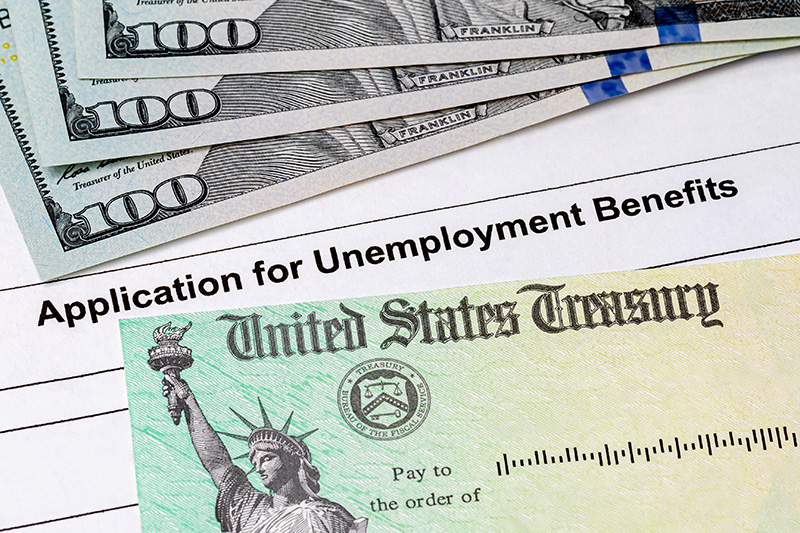Payments to the IRS for Taxes Due using Unemployment Checks
March 16, 2022 by Carolyn Richardson, EA, MBA
I made payment arrangements with unemployment. Will they still tax my tax check when I'm done setting up payment arrangements with them?
-Thomas, Indiana
Hello Thomas,
If we understand your question correctly, it sounds like you would like to know if the IRS can still use your tax refunds to pay off other debts. I am not sure if you are repaying unemployment benefits or making payments to the IRS for taxes due using your unemployment checks, so I’ll try to address both issues for you. When a government agency requests that your tax refunds be used to pay a debt to the government, this is usually referred to as an “offset,” as the tax refund is offsetting a debt owed to the same government that owes you money. A simpler way to think of this is like a credit card account – if you have a $1,000 balance on your credit card, and you receive a $100 refund from a merchant for a returned item and that refund goes back to your credit card, that just lowers your outstanding balance on the card to $900. You don’t receive the $100 in cash back. The same idea applies with debts owed to the government.
Generally, you may be required to repay unemployment benefits when you are receiving unemployment and it is later determined that you were not eligible or entitled to those benefits. This can happen for a variety of reasons, including when the Indiana Department of Workforce Development (DWD), which oversees the unemployment compensation, reverses a previous award of benefits if you fail to report vacation pay, severance pay, or similar payments, if you incorrectly report the amount of earnings and hours worked, if your benefit amount is redetermined because of incorrect wage information, or your benefits are terminated because it is later determined you are ineligible. All of these can result in a requirement to repay your unemployment compensation.
If you are unable to pay the entire amount back at once, you can set up a monthly payment arrangement with the DWD. During this payment agreement, the state of Indiana can place a levy on any state AND federal refunds that you may be entitled to, to reduce the debt quicker. If you have any state lottery winnings, these can also be levied. Whether the state takes these actions will likely depend on the amount of the debt, the amount of repayment required, and the amount of any pending refunds you have requested from the Indiana Department of Revenue or the IRS.
On the other hand, if you are repaying to the IRS some sort of debt and are using your unemployment checks to make these payments, the situation doesn’t get much better.
When you owe money to the IRS, they can take a variety of actions against you to collect the balance due. The good news is that if your debt is sufficiently small (under $10,000), it is likely the IRS will not place any liens or levies against you or your assets to collect the debt, especially if you are in a monthly payment plan. As long as the payments are made timely and regularly, the IRS will not pursue any other collection enforcement.
The bad news, though, is that doesn’t apply to your current or future tax refunds – those will be used to offset your tax debt so that the debt is paid down faster, even if you are making your installment payments on time. The IRS may also request that the state of Indiana withhold your state tax refund and use that amount to also pay off your debt.
While that may sound harsh, it does pay down the debt faster, regardless of the reason you incurred the debt. Like a credit card account, the government isn’t going to issue any cash refunds to you as long as there is an outstanding balance.
We hope that answers your question for you! If you are interested in whether you qualify for relief of tax debt, we have a number of helpful articles on our website that you may want to review on the topic of qualifying for relief, and getting assistance in those requests.
Sincerely,
Carolyn Richardson, EA, MBA





